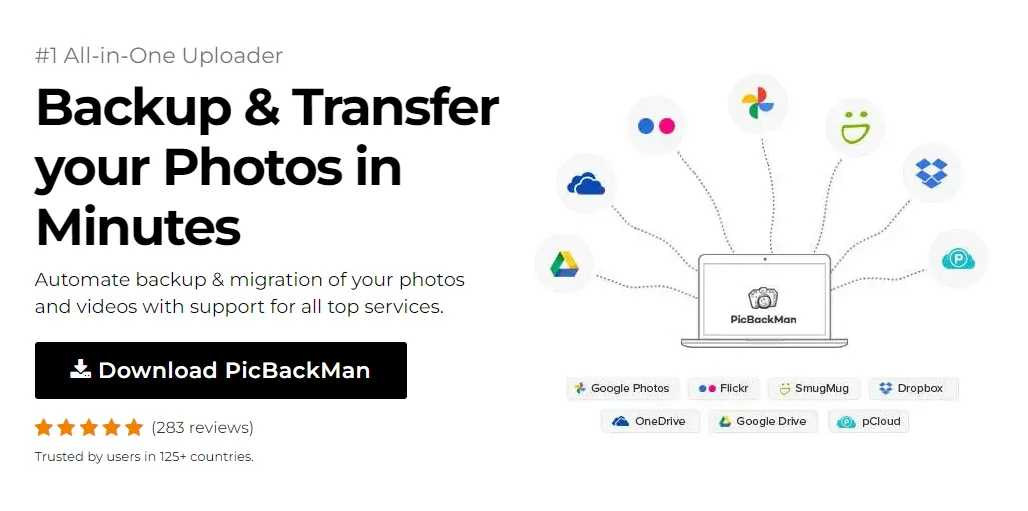
Why is it the #1 bulk uploader?
- Insanely fast!
- Maintains folder structure.
- 100% automated upload.
- Supports RAW files.
- Privacy default.
How can you get started?
Download PicBackMan and start free, then upgrade to annual or lifetime plan as per your needs. Join 100,000+ users who trust PicBackMan for keeping their precious memories safe in multiple online accounts.
“Your pictures are scattered. PicBackMan helps you bring order to your digital memories.”
iCloud vs Dropbox: The Ultimate Showdown of Cloud Storage Solutions


In today's digital age, where data is king, cloud storage solutions have become indispensable for both individuals and businesses alike. Among the plethora of options available, iCloud and Dropbox stand out as two of the most popular choices. But which one is the better fit for your needs? In this article, we'll delve deep into the realm of iCloud vs Dropbox, examining their features, performance, security, pricing, and more to help you make an informed decision.
iCloud vs Dropbox: A Head-to-Head Comparison
Overview
At their core, both iCloud and Dropbox offer cloud storage services, allowing users to store and sync files across multiple devices seamlessly. However, their approaches and feature sets differ significantly.
Features
iCloud: Apple's iCloud is deeply integrated into the Apple ecosystem, offering seamless synchronization of photos, videos, documents, and more across all Apple devices. It also includes features like iCloud Drive for file storage, iCloud Photos for photo management, iCloud Backup for device backups, and iCloud Keychain for password management.
Dropbox: Dropbox, on the other hand, is a cross-platform cloud storage solution that caters to users across various devices and operating systems. It offers features such as file syncing, file sharing, collaboration tools, version history, and third-party app integrations.
Performance
iCloud: Being tightly integrated with Apple's ecosystem, iCloud tends to offer smoother performance and faster syncing speeds for users of Apple devices, such as iPhones, iPads, and Macs.
Dropbox: Dropbox excels in providing consistent performance across different platforms and devices, ensuring that files sync reliably regardless of the operating system or device being used.
Security
iCloud: Apple prioritizes security and privacy, employing robust encryption methods to safeguard user data stored on iCloud. Two-factor authentication (2FA) adds an extra layer of security to prevent unauthorized access.
Dropbox: Dropbox also prioritizes security, utilizing advanced encryption protocols to protect user data both in transit and at rest. Additionally, Dropbox offers features like password protection for shared links and remote wipe for lost devices.
Price and Plans
iCloud: iCloud offers various storage plans, starting with 5 GB of free storage and ranging up to 2 TB for paid plans. The pricing is competitive, particularly for users deeply invested in the Apple ecosystem.
Dropbox: Dropbox offers a free Basic plan with 2 GB of storage, along with paid plans starting from 2 TB and customizable solutions for businesses through Dropbox Business.
Cross-Platform Compatibility
iCloud: While iCloud primarily caters to Apple users, it does have limited functionality on Windows and Android platforms. However, the seamless integration and feature set are best experienced within the Apple ecosystem.
Dropbox: Dropbox shines in cross-platform compatibility, offering dedicated apps and robust functionality on Windows, macOS, Linux, iOS, Android, and web browsers.
Customer Support
iCloud: Apple's customer support for iCloud is known for its reliability and responsiveness, with various support options available, including live chat, phone support, and online resources.
Dropbox: Dropbox provides comprehensive customer support through various channels, including email support, help center articles, community forums, and priority support for business users.
Quick Tip to ensure your videos never go missing
Videos are precious memories and all of us never want to ever lose them to hard disk crashes or missing drives. PicBackMan is the easiest and simplest way to keep your videos safely backed up in one or more online accounts. Simply Download PicBackMan (it's free!), register your account, connect to your online store and tell PicBackMan where your videos are - PicBackMan does the rest, automatically. It bulk uploads all videos and keeps looking for new ones and uploads those too. You don't have to ever touch it.
FAQs (Frequently Asked Questions)
Can I use iCloud on Windows PCs?
Yes, Apple provides an iCloud app for Windows, allowing users to access their iCloud Drive, photos, mail, calendar, and more on Windows PCs.
Is Dropbox suitable for businesses?
Absolutely! Dropbox offers tailored solutions for businesses of all sizes, providing robust collaboration tools, admin controls, and advanced security features.
Does iCloud sync data across all Apple devices automatically?
Yes, iCloud offers seamless synchronization of data across all Apple devices logged in with the same Apple ID, ensuring a consistent experience.
How secure is Dropbox for storing sensitive information?
Dropbox employs industry-leading encryption standards and security measures to protect user data, making it suitable for storing sensitive information.
Can I share files and folders with non-Dropbox users?
Yes, Dropbox allows users to share files and folders with anyone, even if they don't have a Dropbox account, through shared links.
Does iCloud offer family sharing options?
Yes, iCloud Family Sharing allows users to share iCloud storage plans, App Store purchases, Apple Music subscriptions, and more with family members.
Conclusion
In the showdown between iCloud vs Dropbox, both cloud storage solutions offer unique features and benefits tailored to different user preferences and requirements. While iCloud excels in seamless integration within the Apple ecosystem and prioritizes privacy and security, Dropbox shines in cross-platform compatibility, collaboration tools, and customizable business solutions. Ultimately, the choice between the two depends on your specific needs, preferences, and the devices you use. Evaluate the features, performance, security, and pricing carefully to determine which cloud storage solution best suits your requirements. Whether you're an Apple aficionado or a multi-platform user, both iCloud and Dropbox have something valuable to offer in the realm of cloud storage.






